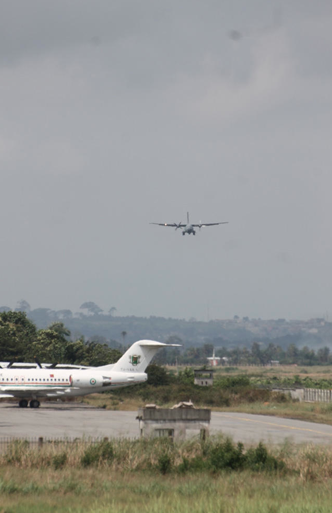The EU wants to better recruit its ESDP civilian experts
(B2) Improving the implementation and management of civilian defense missions is one of the main ongoing projects of the
European Security and Defense Policy (ESDP). A need that is both strategic – civilian missions are specific to European defense -; practical — they are in full development —; and politics – it will be one of the priorities of the future Swedish EU Presidency. Following on from "no paper" circulated to the Ministers of Foreign Affairs during their informal meeting (gymnich) in Hluboká nad Vltavou (Czech Republic), the Political and Security Committee (COPS) adopted, at the beginning of April, " Guidelines aimed at facilitating “force generation” for civilian ESDP missions.
The "generation of force" Achilles' heel of civilian missions. This decision aims to remedy the problems faced by civilian ESDP missions in finding the right number of qualified candidates”. The launch of new missions, with particularly large numbers of staff (Kosovo, Georgia) or the reinforcement of missions in risk areas (Afghanistan, Iraq, Congo, etc.) has made it more than necessary to improve procedures at several levels. If the problem is, in fact, particularly critical in missions operating in areas with a high level of risk (particularly in Afghanistan), it is also so for certain very specialized functions which are very difficult to fill within the missions (specialist procurement, financial management and control, etc.). This decision offers several solutions: generate more candidates, improve working conditions and incentives to go on assignment.
Broaden the pool of qualified candidates. The Council therefore recommends improving recruitment methods. Calls for staff contributions must be more visible, announced earlier and better disseminated within the Member States. They must also be synchronized to avoid - as is currently the case - successive calls for different missions. It is also a question of reviewing the descriptions so as not to require too high levels of skills for certain positions. In practical terms, it is also a question of offering other positions, almost automatically, to candidates not selected but with interesting profiles for other assignments. Finally, it is a question of opening up certain posts – normally reserved for public officials of the Member States – to other types of candidates, for example retired police officers or civilians for posts as police trainers.
Better working conditions. The note also addresses the need to improve the attractiveness of certain risky missions (Eupol Afghanistan, etc.), by granting additional leave for “difficult work” or compensation days for commuting. It is also a question, on the spot, of improving the working conditions by proposing sports activities,
social, cinema… (a necessity in certain missions which require confinement in certain areas). It is also necessary to ensure a “positive atmosphere and a good working climate” prevail in order to facilitate good “feedback” from agents returning from missions and encouraging their colleagues to leave. It should be noted that at European level, the bonus system has just been reviewed to make presence in high-risk missions (Afghanistan) more attractive. “The impact of this measure will have to be closely monitored and reviewed” if necessary, it is mentioned.
Career incentives. Various measures can also be taken in the Member States to facilitate presence in EU missions, by removing certain constraints. Some States require, in fact, a minimum period in the Member State between two external missions. Career incentives should also be considered. In many countries, in fact, a departure on an external mission is not counted in the career of a public or private agent, and can even be perceived negatively for career progression. (download the draft decision)


